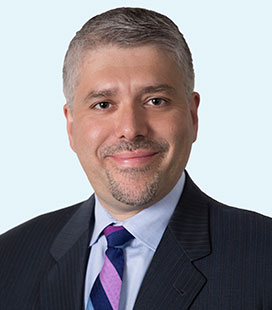
Dennis Katechis, DO, is a specialist in cardiovascular disease with a strong clinical interest in caring for patients after a heart attack, and the treatment of congestive heart failure. Dr. Katechis is a member of the Englewood Health Physician Network.
What is the difference between good and bad cholesterol, and what dietary choices can we make to make sure we have more good cholesterol than bad?
Dr. Katechis: Bad cholesterol, or LDL (low-density lipoprotein), contributes to the formation of plaque in the body’s arteries—not just the coronary arteries, but also the arteries that bring blood to the legs, arms, brain, and rest of the body. Good cholesterol, or HDL (high-density lipoprotein), is responsible for bringing the bad cholesterol back into the liver to be metabolized. The amount of bad cholesterol produced in the liver, and how well the liver metabolizes it, is to some extent determined by genetic makeup—but a healthy lifestyle and a diet low in saturated fat will help the process run more efficiently.
If your cholesterol levels are off, will you experience any physical symptoms?
Dr. Katechis: No, and that’s one of the most important things for patients to understand and appreciate. The same applies to high blood pressure, another risk factor for heart disease. High cholesterol causes zero symptoms until changes have already taken place inside the arteries. This is why it is important to have your cholesterol checked once a year.
Truth or myth: Young people don’t have to worry about their cholesterol.
Dr. Katechis: Myth. It’s important for young people to schedule an early visit to their primary care physician, who will not only give blood tests, but look at other potential risk factors that determine risk profile, such as family history, diabetes, smoking, obesity, and high blood pressure. If some of those factors are added to the profile of a young person who already has high cholesterol, that person may be a candidate for cholesterol-lowering therapy at a young age.
Posted September 2018

Dennis Katechis, DO, is a specialist in cardiovascular disease with a strong clinical interest in caring for patients after a heart attack, and the treatment of congestive heart failure. Dr. Katechis is a member of the Englewood Health Physician Network.
